When it comes to diving in Cape Town, there is no shortage of top diving spots for beginner and expert divers. Most people looking to try out diving stick to scuba, and scuba diving in Cape Town is one of the most popular marine activities. But, as fun as scuba is, it can be constricting moving underwater with all that heavy gear and equipment. If you’re looking to try something a little different, why not give freediving a try?
What is freediving?
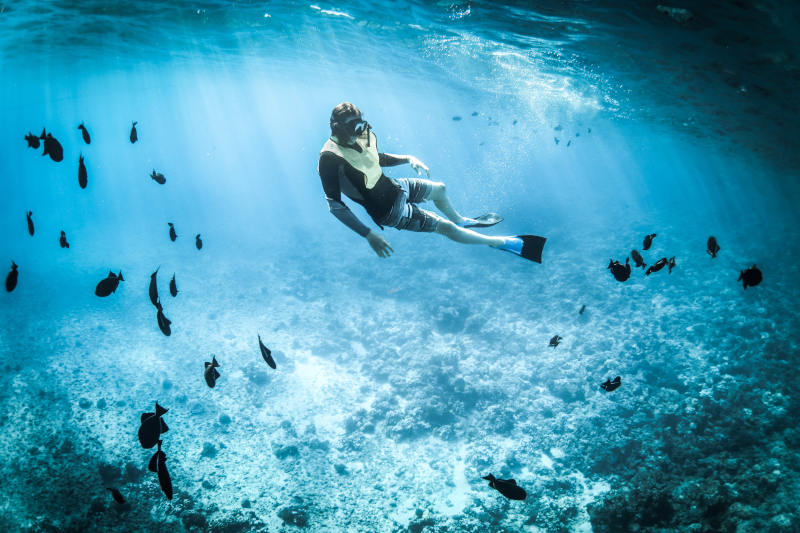
Also known as breath-hold diving, freediving is simply diving without a tank or any sort of equipment to help the diver breathe. The diver holds their breath and then swims as far as they can to explore their surroundings.
It may sound intimidating having to hold your breath underwater, but people who do it say it is incredibly freeing being able to control your breathing, while you glide and float under the waves. You also don’t need to be a trained swimmer or record-holding inhaler. Anyone can learn how to free dive.
Freediving is an incredible way to get in touch with your inner self while you explore the world around you. Read more to discover what it entails and what makes it such a unique and exciting experience.
Freediving vs scuba diving
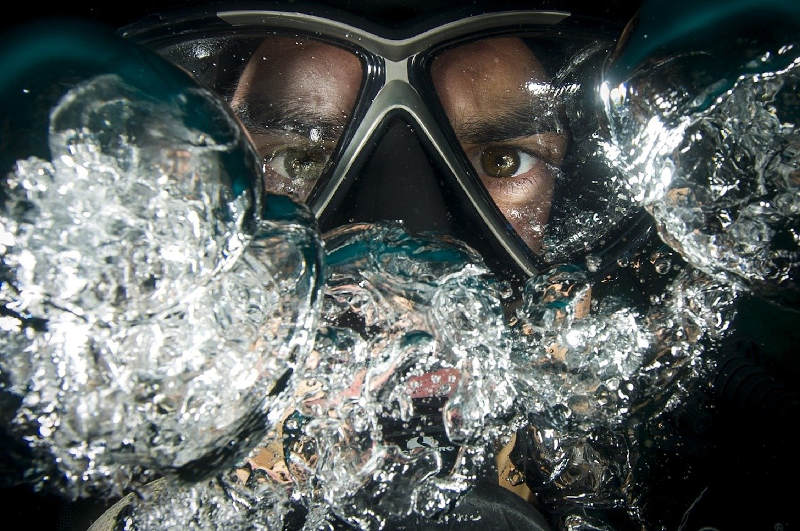
Beginner divers may wonder whether they should try scuba diving or breath-hold diving, and whether there is a difference or not. Let’s break it down and look at some of the key differences below:
| Freediving | Scuba Diving |
| Freedivers go underwater with no tank and minimal equipment. | Scuba divers always use breathing tanks. |
| Freedivers learn to hold their breath and often make multiple dives, returning to the surface in between dives. | Scuba divers only need to make one dive to the site, as they don’t need to break for air. |
| Freedivers are usually able to get closer to marine animals because they don’t exhale bubbles. | Scuba divers are often unable to get close to marine life because the air bubbles they produce can scare sea animals. |
| Freedivers always dive in pairs or groups, as a safety rule. This “buddy system” makes the diving experience more social, as divers can chat in between dives. | Scuba divers don’t rely on a dive buddy and can remain underwater consistently, so the dive experience is more isolating. |
There you have it! Both options are great, but freediving offers a more natural and up-close diving experience.
Where are some top freediving locations in Cape Town?
False Bay:
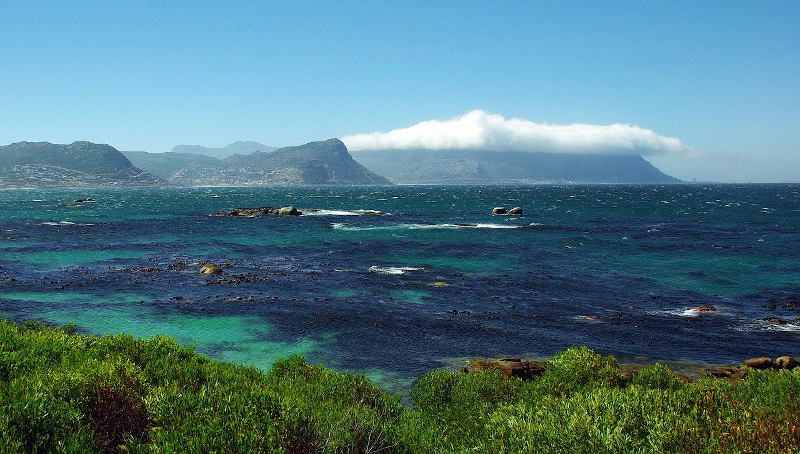
False Bay is the ideal location to base yourself for a freediving expedition, offering reef, seal and even wreck diving opportunities. Although divers can access dive sights in False Bay all-year-round, the visibility at these sites is often reduced in summer due to strong southeasterly winds. The winter months are the ideal time to dive when the winds die down, and visibility is strong. Popular diving locations include Miller’s Point, Cape Point Nature Reserve and Simonstown.
Pyramid Rock – Miller’s Point
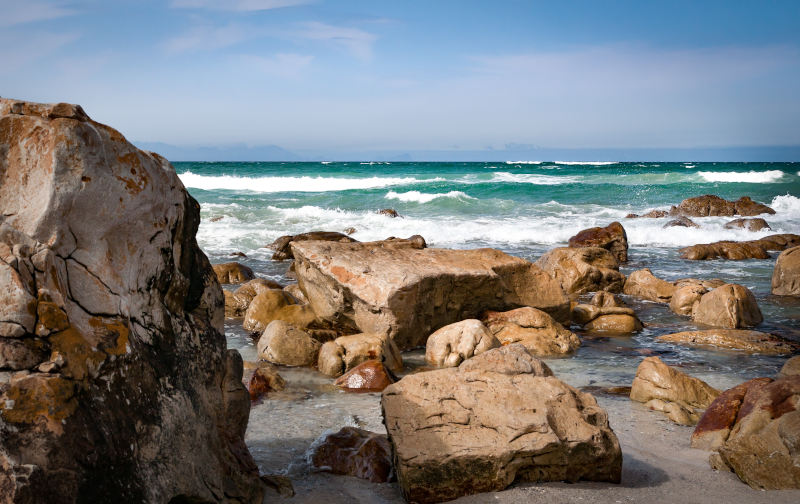
Pyramid Rock is located in a marine protected area called Castle Rock in Miller’s Point, just beyond Simonstown. It’s named for its unusual shape and is one of the most famous sights for diving in Cape Town. It consists of an exquisite reef that sports colourful corals, a variety of fish and gentle cow sharks and gully sharks.
- Depth: About 12 metres
- Diver Level: Beginner to advanced
- Boat or shore access: Both, but boat access is easier.
Patridge Point – Simonstown
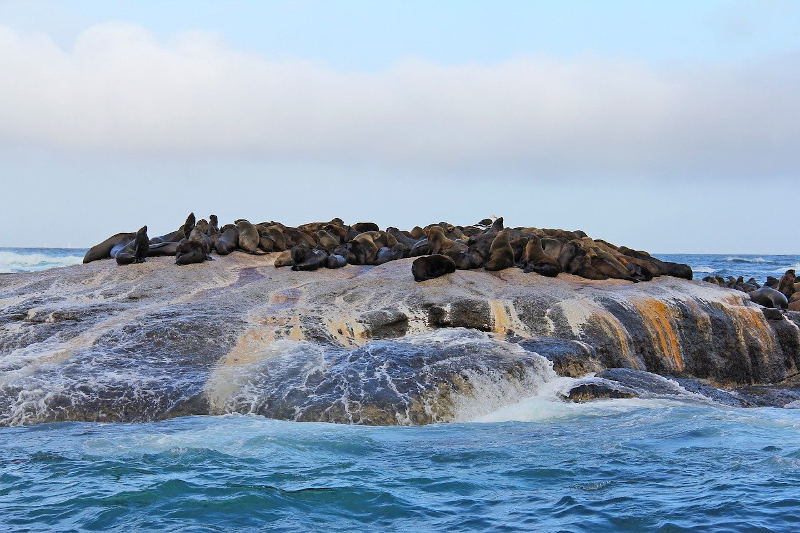
The Patridge Point reef near Simonstown is extensive, consisting of several diving locations namely Big Rock, Seal Rock, Deep Patridge and Peter’s Pinnacles. This dive location is famous thanks to its nearby colony of friendly seals. If swimming with seals has always been your dream, then Patridge Point is your ideal place for diving in Cape Town.
- Depth: About 20 metres
- Diver Level: Beginner to advanced
- Boat or shore access: Boat access.
The A-Frame – Cape Point
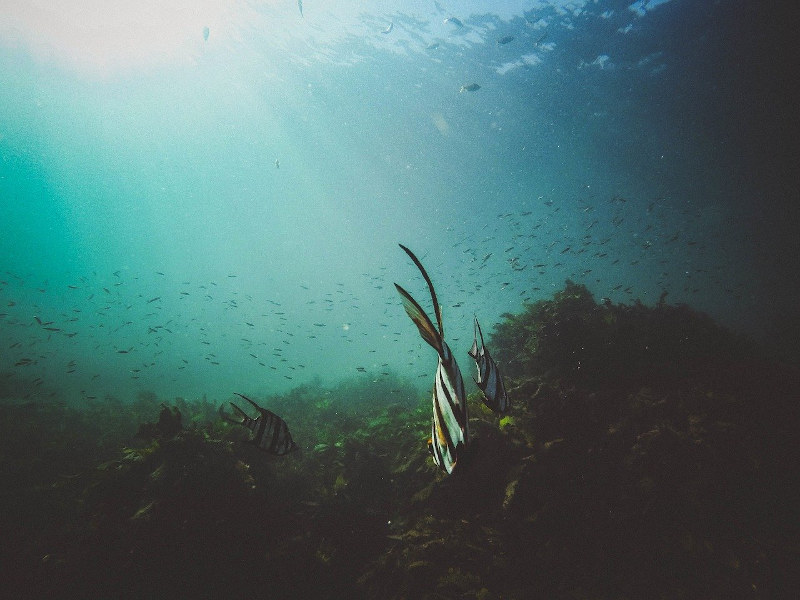
The A-Frame is fantastic for freedivers, with accessibility from the beach. It’s well known for being home to an otherworldly kelp forest, where octopuses, cuttlefish and tiny catsharks gather. At the dive entry point is a rocky plateau, where you can gently descend into the waters. Enjoy the magical experience of swimming through the kelp forest and seeing what critters you can spot. Underwater boulders also create impressive overhangs and swim-throughs. The A-Frame is situated around five kilometres outside of Simonstown, along the Cape Point road.
- Depth: About 12 metres
- Diver Level: Beginner to advanced
- Boat or shore access: Shore access.
The Atlantic Seaboard:
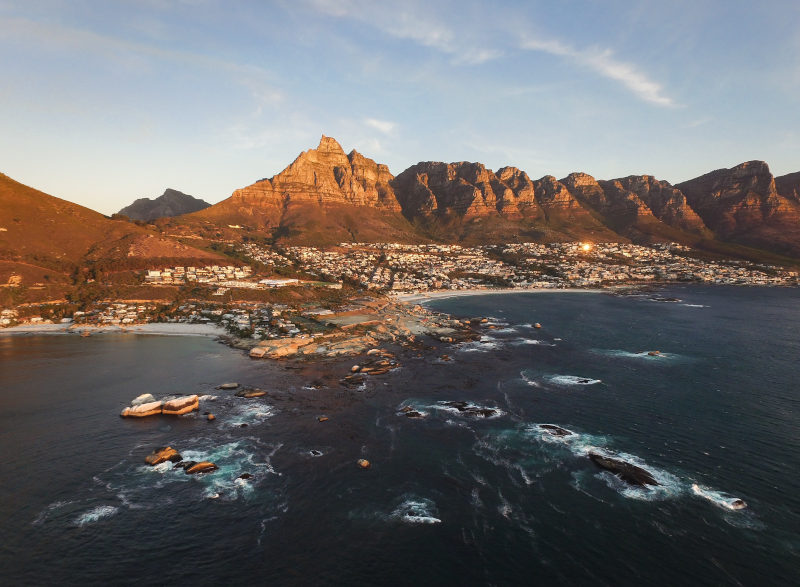
The western seaboard stretches from Hout Bay to Green Point in the city centre and offers numerous stunning locations for freediving excursions. Popular hotspots on the Atlantic Seaboard include Oudekraal Reserve, Karbonkelberg, as well as shipwreck sites like The Maori. The best time for diving on the western seaboard is during summer as the currents can get too choppy in winter.
Coral Gardens – Oudekraal Reserve
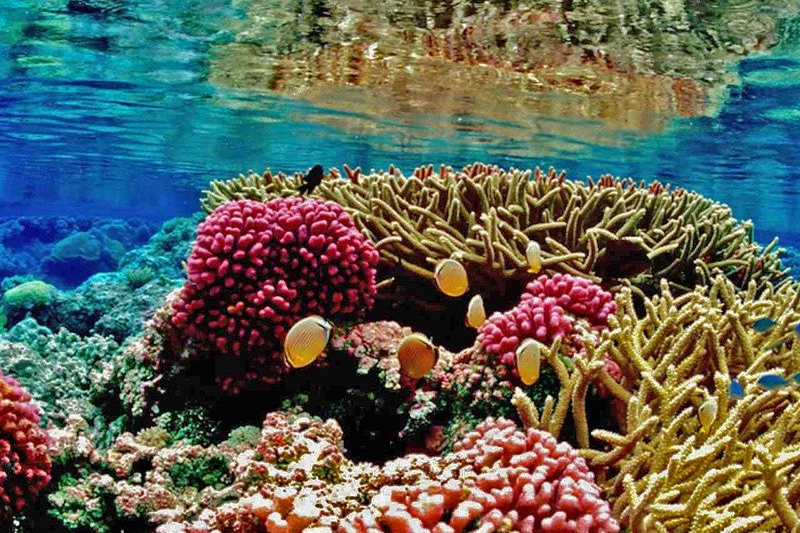
Coral Gardens is still a lesser-known dive sight, but it’s well worth making the trip. The dive is located in Hottentotshuisie Bay in Oudekraal Nature Reserve. Coral Gardens is easily one of the most beautiful sights for diving in Cape Town, with a stunning coral reef, colourful fish and crystal clear blue waters. Be aware that this dive site is very exposed, so expect some potentially strong currents.
- Depth: About 18 metres
- Diver Level: Beginner to advanced
- Boat or shore access: Both, but boat access is recommended. Shore access is quite far from the dive area, and divers will have to swim out.
Sandy Cove – Oudekraal Reserve
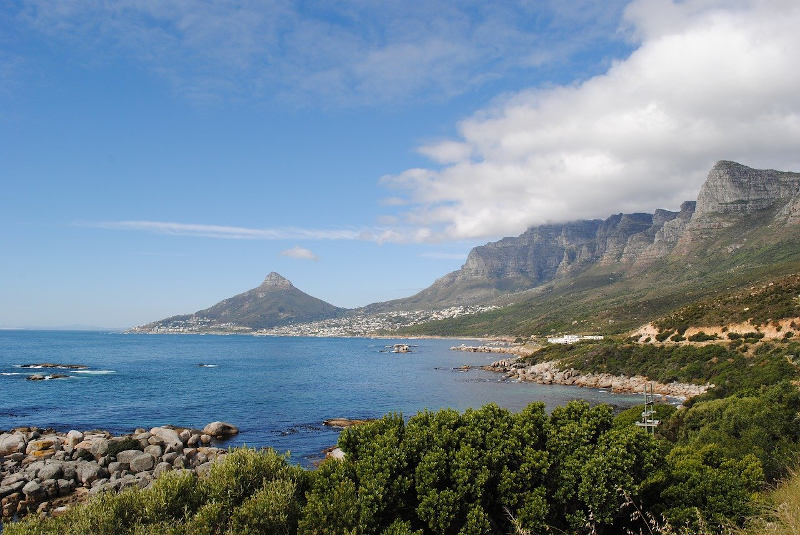
Sandy Cove is a charming little bay, located in Oudekraal Reserve, right across from the 12 Apostles Hotel. Access to Sandy Cove is relatively tricky, as it entails a steep walk down from Victoria Road, down a slope and over rocks. Be sure to take your time getting there. A small beach serves as the entry point for the Sandy Cove dive sight. The cove consists of a sandy arena surrounded by a kelp forest that freedivers can swim through.
- Depth: About five metres
- Diver Level: Beginner to advanced
- Boat or shore access: Shore access.
Duiker Island – Hout Bay
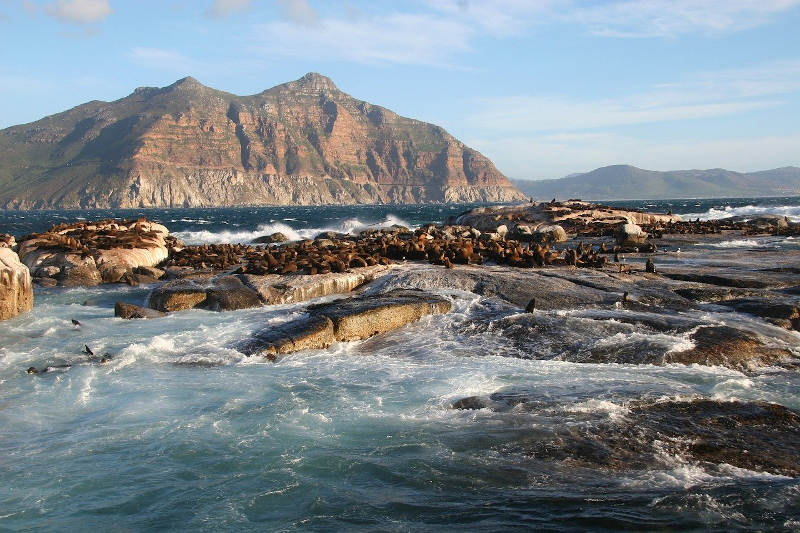
Duiker Island is another popular diving point for one-on-one freediving with seals. Located off the coast of Hout Bay, Duiker Island is only accessible by a four-kilometre boat ride. The surrounding reefs are not as exciting as other sites, consisting of a lot of kelp and seaweed. The real magic of Duiker Island is getting the chance to swim with curious, playful seals, who will perform spectacular underwater pirouettes around you.
- Depth: About six metres
- Diver Level: Beginner to advanced
- Boat or shore access: Boat access.
Can I free dive without getting certified?
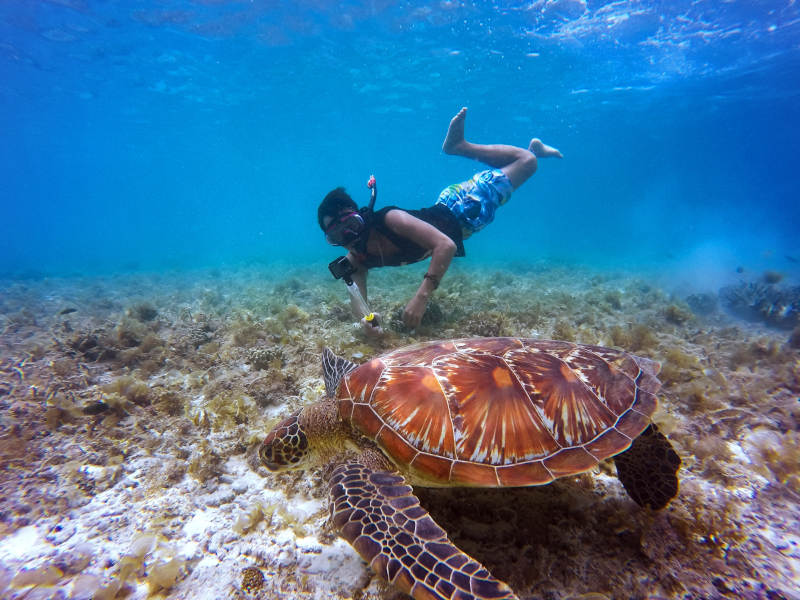
Technically anyone can free dive by holding their breath and diving underwater. However, we do not recommend freediving great depths without proper training, as it is potentially unsafe. With proper instruction from qualified freediving teachers, you learn how to hold your breath for extended periods. You also learn methods of how to equalise and adjust to increasing depth and water pressure.
There are many freediving courses on offer in Cape Town. Places like Cape Town Freediving and Cape Town Dive Centre offer introductory and advanced programmes. Always make sure you consult with licensed freediving instructors before visiting any of the recommended dive sights, as sites’ availability can be subject to weather conditions and environmental regulations. In some instances, you may be required to purchase a permit to dive in a marine protected area (MPA) before you may enter.
______________________________________________________________________________________
Are you a freediver or a scuba diver? What are some of your favourite diving locations in the mother city? Leave a comment below and let us know. We’d love to hear from you!
Is freediving not for you? No problem, check out our blog post on scuba diving in Cape Town.
Looking for more fun things to do in Cape Town? We’ve compiled a list of awesome adventures in the mother city.
Disclaimer!
All information on this page was correct at the time of publishing and may change at any time without prior notice. Travelstart will not be held liable for loss or inconvenience resulting from the use of out-dated or incorrectly noted information.